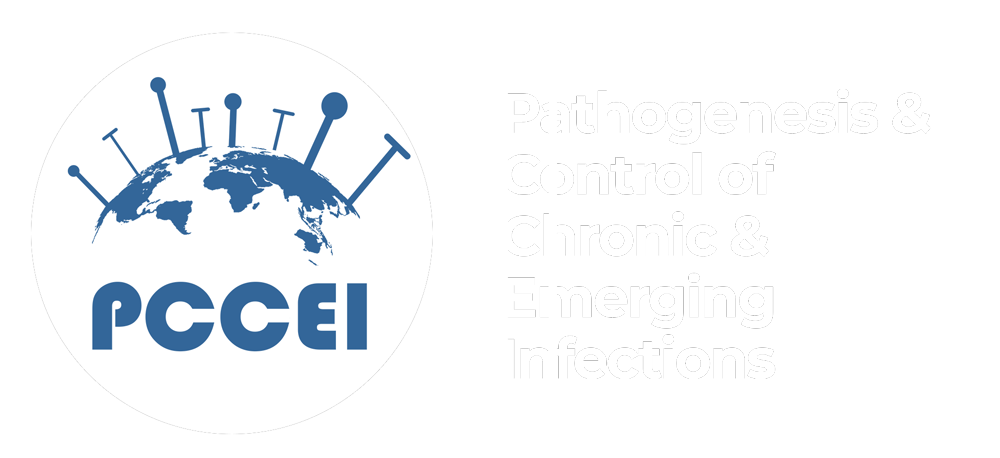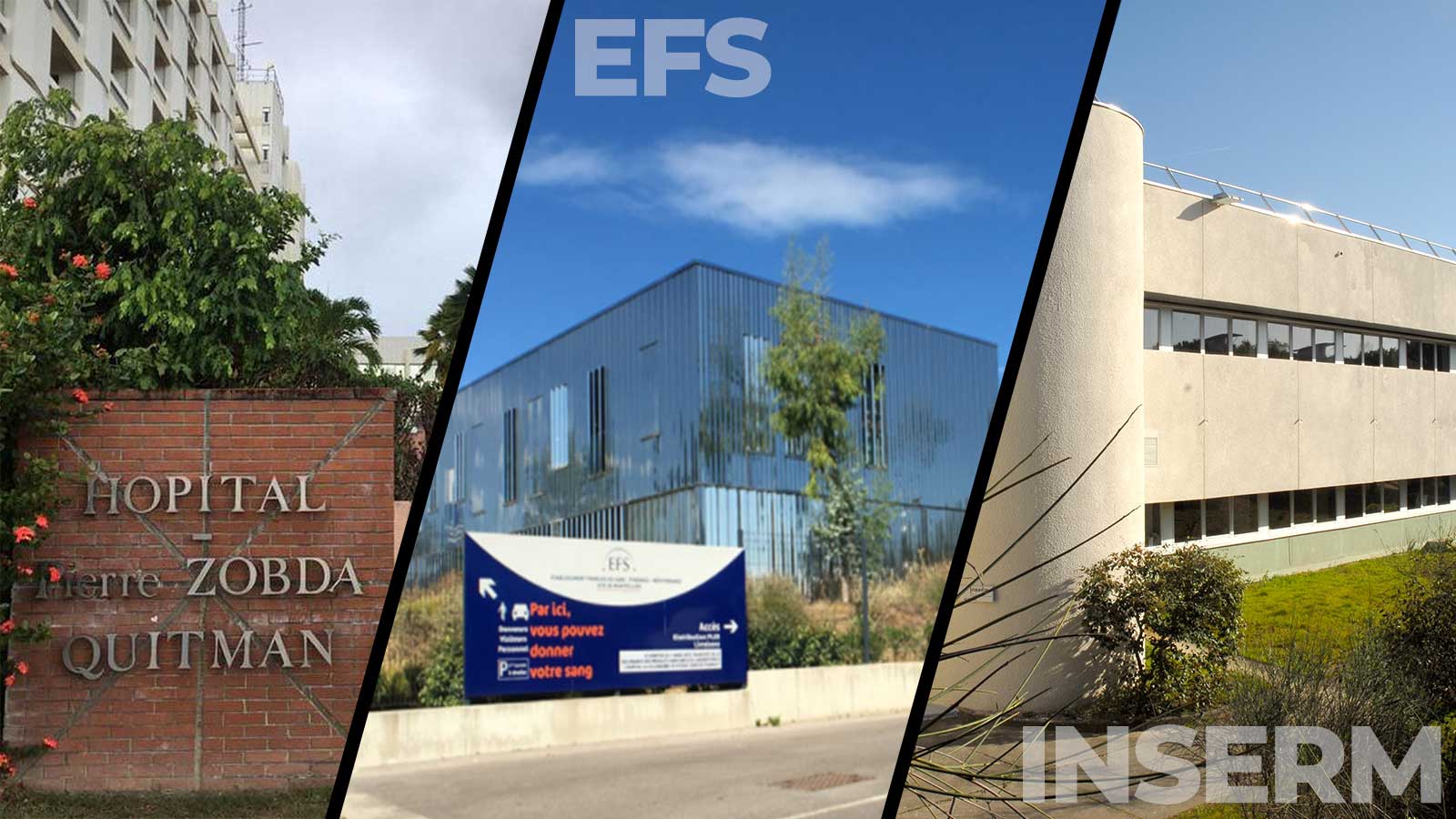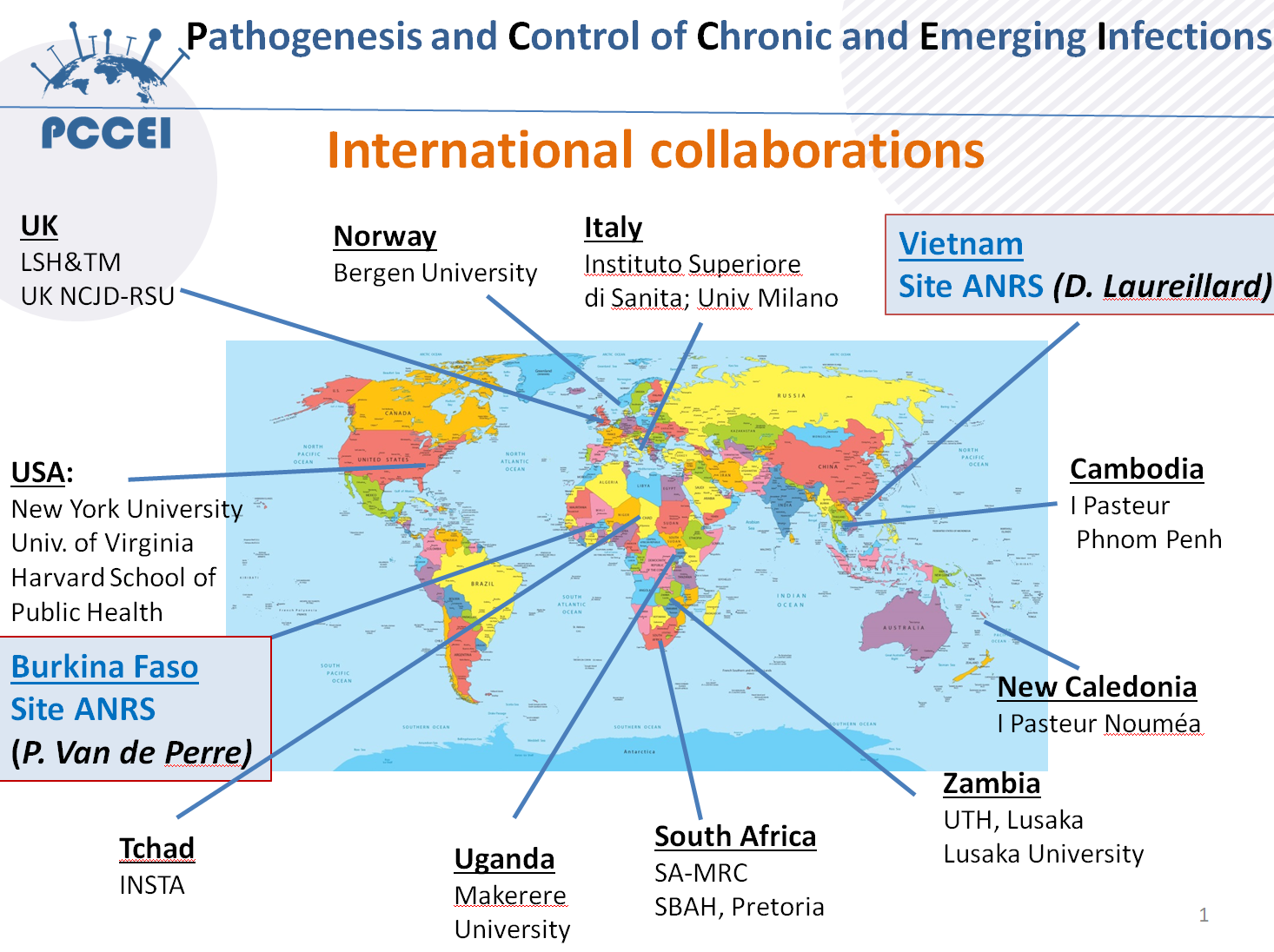Strategic and Scientific Objectives
To create an integrated research structure dedicated to chronic and emerging infections
To ensure a multidisciplinary continuum between cognitive, translational and clinical research, with a strong connection with the Montpellier University Teaching Hospital (CHRU).
To study host-pathogens interactions at the molecular, cellular and host levels (pathogens such as HIV, HTLV-I, HPV, HCV, HBV, HSV, dengue, arboviruses, endogenous retroviruses, mycobacteria, prions and emerging infectious agents).
To establish the place of chronic infections and their control in the national and international Public Health stakes.
To include pathogenesis and control of chronic and emerging infections in national and international cognitive and interventional programs on chronic diseases and ageing.
To facilitate innovation (drug discoveries, diagnostic tools) and industrial partnerships in close vicinity with open platforms (CEMIPAI, BioCampus, …).and private companies
To stimulate international research partnerships on chronic and emerging infections, in particular with low and middle income countries (LMIC).
History
PCCEI was created in January 2011 after merging a university research team (EA4205) dedicated to research on HIV pathogenesis, transmission and prevention with a group from the Molecular Dermatology Unit of the University Institute of Clinical Research (IURC) having a sound experience in research on viruses with mucocutaneous tropism.
Since January 1st, 2021, with the addition of a team of researchers et practitioners from the Antilles, we managed to extend our domain of expertise and succeeded in closing the gap by integrating field application for emerging pathogens.
Originally composed of 28 people it has been progressively enriched by new personnel and now counts up to around 70 members in total (including INSERM, University of Montpellier, University of the Antilles and EFS staff members).
Our activities are located on 3 sites
INSERM Occitanie delegation (Montpellier), where most activities are located, including the central management of the unit;
EFS Euromedecine (Montpellier), where studies on prion and innovative diagnostic assays are conducted, on a ZRR campus;
CHU Martinique & CHU Guadeloupe, where translational studies on arboviral infections and emerging pathogens are conducted.



